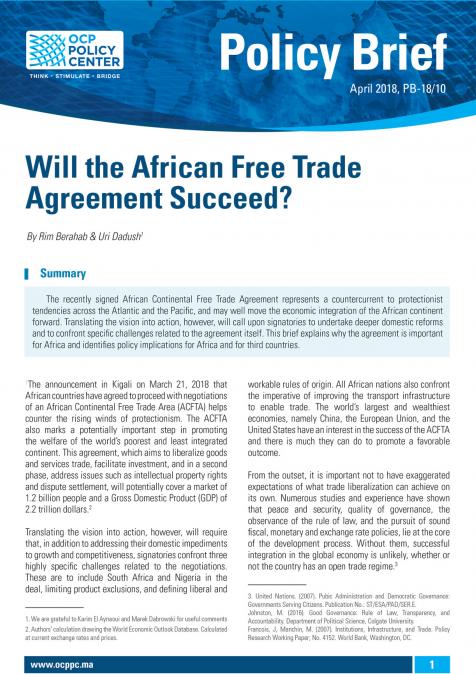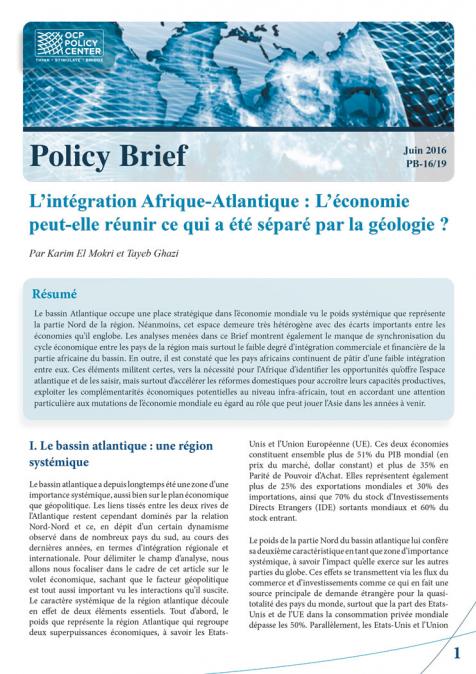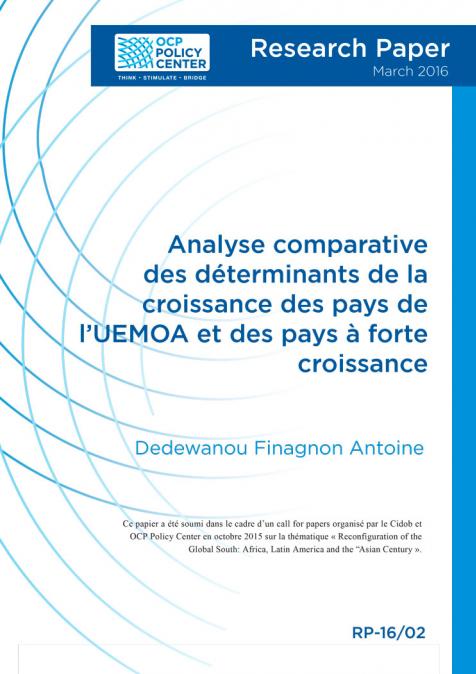Publications /
Policy Brief
Policy Brief
Will the African Free Trade Agreement Succeed?
April 18, 2018
The recently signed African Continental Free Trade Agreement represents a countercurrent to protectionist tendencies across the Atlantic and the Pacific, and may well move the economic integration of the African continent forward. Translating the vision into action, however, will call upon signatories to undertake deeper domestic reforms and to confront specific challenges related to the agreement itself. This brief explains why the agreement is important for Africa and identifies policy implications for Africa and for third countries








